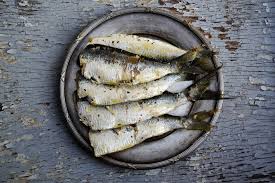Consuming fish weekly guarantee for better sleep, higher IQ: Study
Fish lovers rejoice! A study has recently suggested that children who eat fish at least once a week sleep better and have better IQ.

New Delhi: Fish lovers rejoice! A study has recently suggested that children who eat fish at least once a week sleep better and have better IQ.
A University of Pennsylvania study has found that on an average the IQ level was four points higher for those consuming fish in comparison to those eating less frequently or not at all.

Lead author Jianghong Liu said that they are looking at Omega-3s coming from food instead of from supplements.
The team analysed 541 children aged nine to 11 in China.
About 54 percent boys and 46 percent girls completed a questionnaire about how often they consumed fish in a month, with options ranging from "never" to "at least once per week."
They also took an IQ test, which examines verbal and non-verbal skills such as vocabulary and coding.
Also Read |
HP: 25 children injured as school bus overturns
Later, their parents answered questions about sleep quality using the standardised Children Sleep Habits Questionnaire.
The findings indicated that children who reported eating fish weekly scored 4.8 points higher on the IQ exams than those who said they "seldom" or "never" consumed fish.

Those whose meals sometimes included fish scored 3.3 points higher.
Adrian Raine explained that lack of sleep is associated with antisocial behaviour; poor cognition is associated with anti-social behaviour.
Also Read |
Delhi twins drown in washing machine after mother left them playing as she stepped out briefly
They explained that Omega-3 supplements reduce antisocial behavior and it's not surprising that fish is behind this.
Pinto-Martin stated that fish consumption has really positive health benefits and should be something more heavily advertised and promoted.
For the moment, the researchers recommend incrementally incorporating additional fish into a diet; consumption even once a week moves a family into the "high" fish-eating group as defined in the study.
The research appears in the Scientific Reports journal. (ANI)
 Dynamite News
Dynamite News 